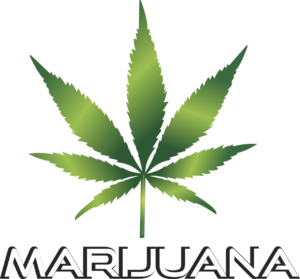Ask The Lawyer By: Daniel A. Gwinn, Esq.- Random Drug Test Reveals Pot Use
RANDOM DRUG TEST REVEALS POT USE. IS JOB LOSS ON THE CARDS?
QUESTION: My employer conducted a random drug test of all employees the other week. I tested positive for marijuana. I occasionally smoke marijuana with friends on the weekend, and sometimes use THC gummies at night to help me sleep. I have never used marijuana at work or gone to work while under the influence. Despite this, my supervisor says I can expect to be terminated. This makes no sense to me. Why should I be fired for engaging in perfectly legal conduct during my off-duty hours?
ANSWER: Twenty years ago, this issue would not have come up: Recreational use of marijuana was illegal in all 50 states. And, while 19 states now allow recreational use and medical use of marijuana is legal in 38 states, employers and legislators are muddled about how to treat off-duty marijuana use in the context of a work-related drug test.
Part of the problem is that marijuana can stay in the system long after its effects wear off. While a marijuana high may last just a couple of hours, metabolites from the drug may turn up on a drug test anywhere from three days to as long as three months later, depending on the frequency of marijuana use, the method of use, the sex and weight of the individual, and the type of test used (blood, saliva, hair, urine). In contrast, a typical urine test can only detect alcohol for 12-24 hours after consumption. Even with the use of an advanced urine test — which is hardly ever used by employers — alcohol can only be detected for 72 hours after the last drink. But whether alcohol could be detected or not is largely irrelevant: Most work-related drug tests do not look for alcohol use.
With such a large window in which employees could test positive for marijuana use, the likelihood is high that the use occurred long before they set foot in the workplace. Increasingly, states are looking at ways to acknowledge workers’ rights to use a legal substance in their off-duty hours, while protecting the rights and interest of employers.
In mid-September, California became one of seven states to prohibit employers from using a positive test for “cannabis metabolites” — without more — as a factor in hiring or firing decisions. The law, signed by Gov. Gavin Newsom on September 18, bars discrimination against individuals on the basis of the use of “cannabis off the job and away from the workplace,” but provides no protection for workers who possess, are impaired by, or use cannabis on the job. The law, like those in other states, also has several carve-outs, notably for employers in building and construction, health care, or employers who are governed by federal law, under which marijuana remains a Schedule I Controlled Substance. (Other drugs controlled under Schedule I include heroin and LSD. Cocaine, methamphetamine, oxycodone, fentanyl and Ritalin are Schedule II drugs.)
Michigan has not hopped on the cannabis-user-protection bandwagon. Michigan’s 2018 law allowing recreational use of marijuana does not require employers to “permit or accommodate” use of marijuana or its derivatives, and allows employers to refuse to hire, to discharge, or discipline workers for violating a “workplace drug policy.” Michigan is an “at-will” employment state. Employers are free to make any use of marijuana — or even use of tobacco — a firing offense under a workplace drug policy.
But employers should think hard before firing workers whose off-duty conduct has not impacted on-the-job performance or the employer’s interests. According to a Michigan Court of Appeals opinion in Braska v Challenge Manufacturing, a positive test for cannabis, without more, does not amount to “misconduct” under Michigan’s Employment Security Act, even if it does violate a workplace drug policy. A section of the MESA that makes workers who are discharged for testing positive on a “drug test” ineligible for benefits is no longer applicable. The law defines a “drug test” as a test “designed to detect the illegal use of a controlled substance.” Because use of marijuana is legal, any test for marijuana would only show the “legal use of a controlled substance,” and the worker would remain eligible for unemployment benefits.
While your employer may have the right to fire you for your off-duty toking, you should have the right to collect unemployment benefits if that occurs (assuming you are otherwise eligible).
The lawyers at GWINN LEGAL PLLC are experienced attorneys and are happy to answer your questions. Give us a call for a free initial telephone consultation about your legal needs. For consideration of your questions in our web column, please submit your inquiry on the “Contact Us” page of our website at www.gwinnlegal.com.
Information provided on “Ask the Lawyer” is current as of the date of publication. Laws and their interpretation are subject to change. The material provided through “Ask the Lawyer” is informational only; it should not be considered legal advice. Submitting a question to “Ask the Lawyer” does not create an attorney-client relationship between the person submitting the question and GWINN LEGAL PLLC. To view previous columns, please visit our website.
 ASK THE LAWYER
ASK THE LAWYER
By: Daniel A. Gwinn, Esq.
Attorney and Counselor at Law
GWINN LEGAL PLLC
900 Wilshire Drive, Suite 104
Troy, MI 48084
(248) 970-0310
(248) 970-0311 facsimile
daniel@gwinnlegal.com
